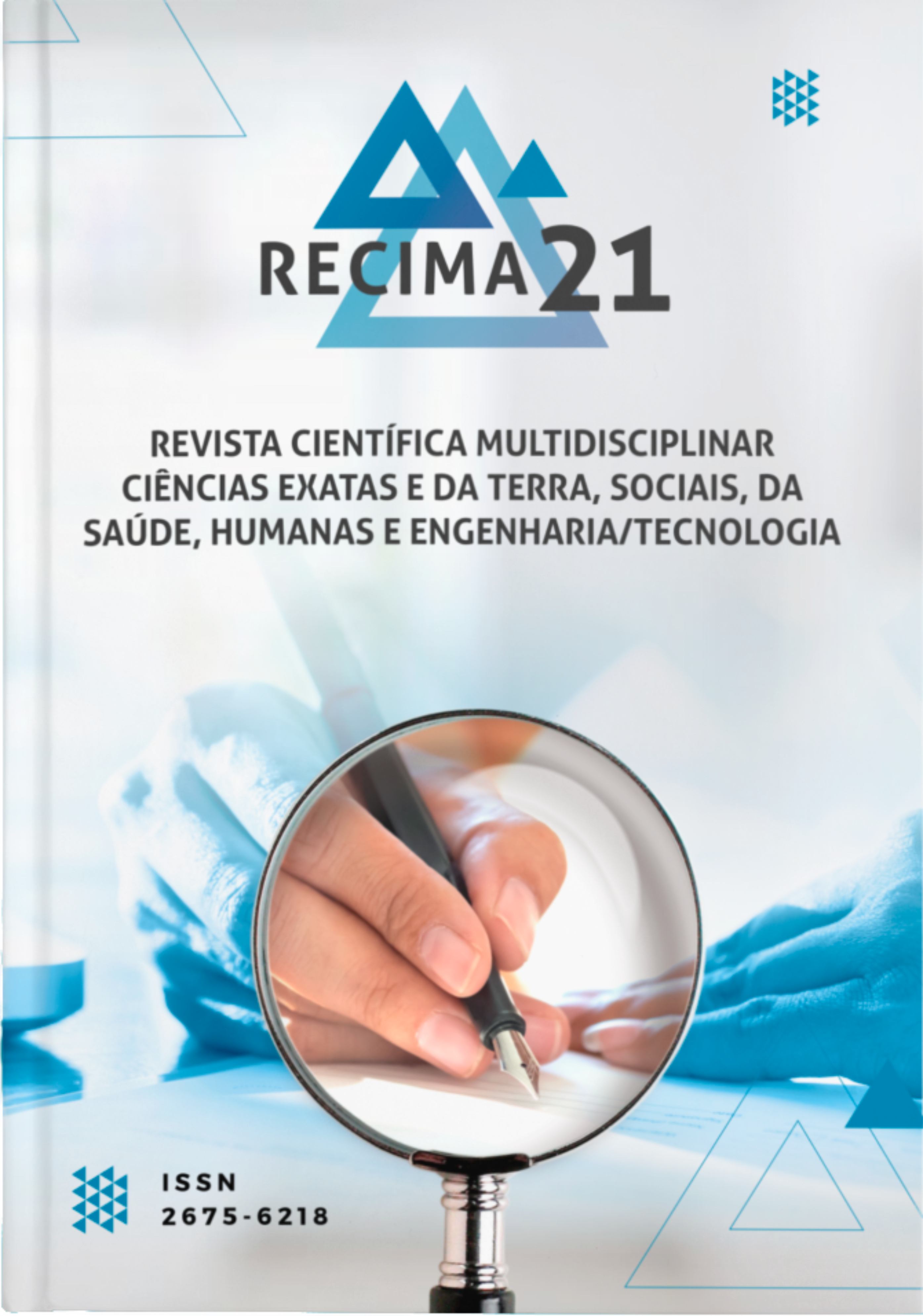CHALLENGES IN THE COMMERCIALIZATION OF PRODUCTS FROM FAMILY FARMING FOR THE NATIONAL SCHOOL FEEDING PROGRAMME
DOI:
https://doi.org/10.47820/recima21.v2i8.657Keywords:
School feeding, Public policies, Food and nutrition securityAbstract
This study analyzed the challenges faced by responsible agents of the National School Feeding Programme (PNAE) in the commercialization of products from family farming in Piauí territories. Cross-sectional study that includes fifteen counties that integrate the regions of Serra da Capivara and Vale do Sambito. The choice of counties was based on purchase percentages between the years 2017 to 2018. The data collection was made through interviews with managers and/or nutritionists, Secretary of Agriculture and farmers. The data were typed in Microsoft Office Excel spreadsheet and analyzed in statistics software package called Stata version 1.2. The analysis between territories and independent variables were evaluated by Pearson’s Chi-square test (x²) and Exact Fisher’s test. The articulation between responsible agents, the schedule execution of the delivery products and elaboration of the sale projects by the farmers were highlighted as the main difficulties faced by managers and/or nutritionists. It was identified that managers know about the local production but they consider it as insufficient and with a few variety of products at all. Farmers highlighted some problems with operation of Municipal Inspection Seal, absence of Law and/or Decree in most of counties in addition to low productivity or irregularities in the offer of products, bureaucracy as well and lack of informations to join the programme. It is necessary a joint operation between responsible agents and execution of intersectorial actions to offer the demand for products that favor the scope of PNAE objectives.
Downloads
References
Rocha C, Burlandy L, Maluf R. Small farms and sustainable rural development for food security: The Brazilian experience. Dev. So. Afr. 2012;29(4):519-529.
Saraiva EB, Silva APF, Sousa AA, Cerqueira GF, Chagas CMS, Toral N. Panorama da compra de alimentos da agricultura familiar para o Programa Nacional de Alimentação Escolar. Ciênc. saúde coletiva. 2013 Apr;18(4):927-935.
Brasil. Lei nº 11.947 de 16 de junho de 2009. Dispõe sobre o atendimento da alimentação escolar e do Programa Dinheiro Direto na Escola aos alunos da educação básica. Brasília: Diário Oficial da União; 2009.
Brasil. Resolução CD/FNDE nº 6, de 08 de maio de 2020. Dispõe sobre o atendimento da alimentação escolar aos alunos da educação básica no âmbito do Programa Nacional de Alimentação Escolar - PNAE. Brasília: Diário Oficial da União; 2020.
Amorim ALB, Junior JRSB, Bandoni DH. Programa Nacional de Alimentação Escolar: estratégias para enfrentar a insegurança alimentar durante e após a COVID-19. Revista de Administração Pública. 2020 jul/ago;54(4):1134-1145.
Silva S, Alves A, Freitas AF, Freitas AF. Uma interface entre alimentação escolar e agricultura familiar em Jampruca e Mathias Lobato, Minas Gerais (Brasil). Revista Espacios. 2017;38(46):1-14.
Prado BG, Hinnig PF, Tanaka LF, Latorre MRDO. Qualidade da dieta de escolares de 7 a 10 anos do município de São Paulo: associação com o número e os locais de refeições. Rev. Nutr. 2015 nov/dez;28(6):607-618.
Strauss JM, Conde SR. Influência das mídias e eletrônicos no consumo alimentar e no estado nutricional de crianças: Revisão Integrativa. Recima 21 – Revista Cientifica Multidisciplinar [Internet]. 2021 Fev [Acesso 2021 set 14]; 2(1):219-233. Disponível em: https://recima21.com.br/index.php/recima21/issue/view/5.
Downloads
Published
Issue
Section
Categories
License
Copyright (c) 2021 RECIMA21 - Revista Científica Multidisciplinar - ISSN 2675-6218

This work is licensed under a Creative Commons Attribution 4.0 International License.
Os direitos autorais dos artigos/resenhas/TCCs publicados pertecem à revista RECIMA21, e seguem o padrão Creative Commons (CC BY 4.0), permitindo a cópia ou reprodução, desde que cite a fonte e respeite os direitos dos autores e contenham menção aos mesmos nos créditos. Toda e qualquer obra publicada na revista, seu conteúdo é de responsabilidade dos autores, cabendo a RECIMA21 apenas ser o veículo de divulgação, seguindo os padrões nacionais e internacionais de publicação.













